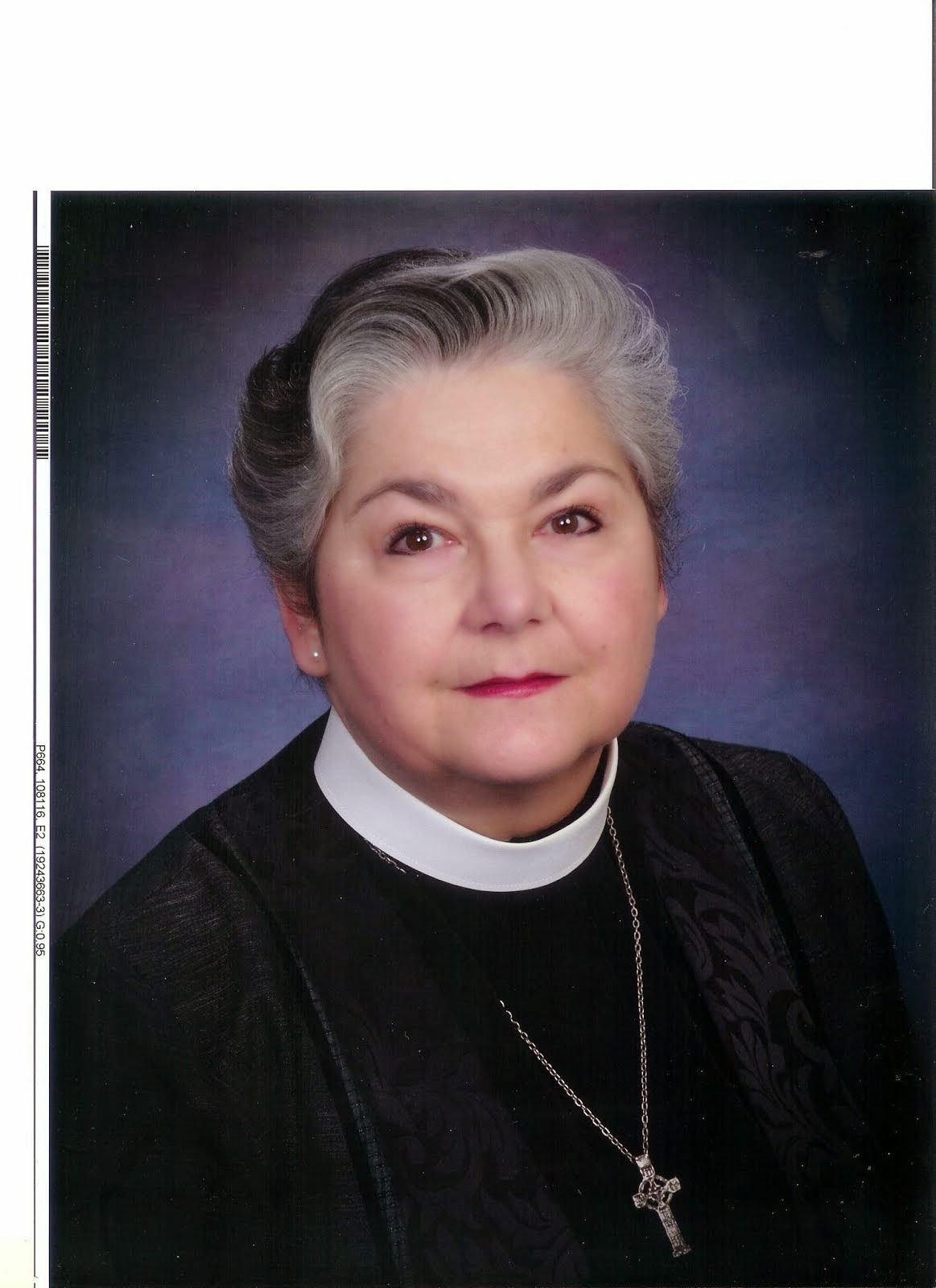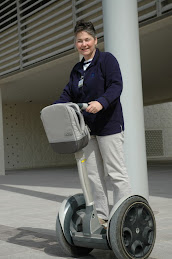A few years back, a
delightful comedian named Bill Engvall did a recurring routine based on the
premise that stupid people should have to wear warning signs that simply state
"I'm stupid." Each time someone said something dumb, someone would
reply with a sarcastic comment ending with the phrase “here’s your sign.”
Here’s your sign that you are not very bright. For example, Engvall told of a
trucker who got his truck stuck under an overpass, and the responding policeman
asked "Hey, you get your truck stuck?" The trucker answered, "No
sir, I was delivering that overpass and I ran out of gas. Here's your
sign." It got to the point that whenever Engvall told a story like this,
when he got to the snarky response, there would be a two second beat, and then
the whole audience would chime in with the tagline – “Here’s your sign.”
Signs are important
to us, and not just to suss out who’s bright and who’s not.
We like to have
clear and unambiguous signs to tell us what is going on, whether we’re driving
in a strange city or trying to figure out who is the power player in a business
meeting. We feel ill at ease if we are in a different place or situation than
we have known before – some guidance helps reduce our anxiety. That’s the
reason why books like “What to Expect When You’re Expecting” are such
bestsellers!
In the midst of
frightening, disorienting moments, we want someone to say, “Here’s your sign!”
Well, imagine you’re
the disciple Philip. Jesus has died, risen again, and has come back and visited
for a while. Nothing has prepared you for this strange situation, so you are
trying to figure out how to make sense of it all. So you ask Jesus to provide
you with a sign. “Show us the Father.” I don’t know if Philip is simply trying
to see if Jesus is really who he says he is – as if there were anyone else who
could do what Jesus had done by reappearing to the disciples after death and
resurrection – or if he is still trying to wrestle with the notion that Creator
God sent his Son to earth. In any case, he is looking for a sign, something
that will help him figure this thing out. And here’s the point where Jesus
could say, “Here’s your sign,” because Jesus knows this is the dumbest thing
Philip could ask for to figure things out, but instead, Jesus is a bit kinder
than Bill Engvall.
Listen to what he
says: "Have I been with you all this
time, Philip, and you still do not know me? Whoever has seen me has seen the
Father. How can you say, `Show us the Father'? Do you not believe that I am in
the Father and the Father is in me? The words that I say to you I do not speak
on my own; but the Father who dwells in me does his works. Believe me that I am
in the Father and the Father is in me; but if you do not, then believe me
because of the works themselves.” In other words, I am the sign you are looking
for, both in my words and in my actions. I am the Father, the Father is me.
Here’s your sign.
We don’t know how Philip responded to Jesus’ words in this
exchange, because Jesus keeps on talking and talking, trying to get out all the
things he has to tell them before he ascends to heaven. It takes all the way to
the middle of the next chapter in John’s gospel for the disciples to get a word
in edgewise, and then they simply say, “Yes, we understand now.” Somewhere in
the midst of all those words, they get the sign they need.
And then Jesus ascends to heaven, and they are left alone.
They gather in a room together to try and figure out what happens next. It is a
profoundly disorienting and difficult time for them. It was all so much easier
when Jesus was there, able to explain things, but now they are on their own, it
seems. They need a sign, even more than Philip did. Something, anything, that
might help alleviate the fear that they are unable to do what they are supposed
to do, maybe even the fear that they don’t really know what to do. So we have
this group of sweaty, stressed out disciples in the room. Perhaps they’ve
argued about what to do next. Perhaps some of them think they should just go
back to their everyday lives. Perhaps there’s a little jockeying for power
going on.
But whatever is going through their minds, something very
strange happens. A great wind rushes through the room. Little bits of flame –
tongues of fire – appear over each of their heads, as if some energy force was
sprouting there, or entering there. And suddenly they have been changed in some
way. When they speak, they can speak in
a whole panoply of different languages. Not just Hebrew or Aramaic or Greek or
even a little Latin, the most likely languages for these disciples to speak.
No, they are speaking languages that they could not have possibly known before
this very moment, when that great wind swept into the room and into them.
Other people hear the commotion and come to see what is
going on. It’s Jerusalem, a hub of the Eastern and Western world, so there are
people from all over, each of whom speaks his or her own language.
And it is the oddest
thing. Each of those people, speaking each of those languages, understand what
the disciples are saying.
Here’s your sign.
Well, what is it a
sign of? Jesus has ascended to heaven. They are now on their own. The wind,
that rushing wind, has filled them with something, an ability, a charism – that
Greek work for gift – to share the word, not only to those who speak like them,
but to everyone, in any language.
If the disciples had
had any doubt about what they were supposed to do next, this final gift from
the One who loves us all takes away any doubt. They are now fully equipped to
go and share the story of what happened to them, when they met Jesus of
Nazareth. They are now able to tell everyone everywhere the good news – that we
are beloved by our Creator, who sent his only Son Jesus to teach us about how
great that love is. Here’s their sign.
Some people say that
this day, Pentecost, marks the birthday of the church. And if it is a birthday,
there must be candles, right? Imagine the disciples, in that room, feeling the
whoosh of that rushing wind, and then the dancing tongues of flame atop their
heads, warming their hearts but not burning them. In that moment , they have
become the candles, the birthday candles. They have become, as Jesus said, a
light to the world.
But the real miracle
of Pentecost is that gifts like those that were bestowed on the disciples in
the room are also are bestowed on us. Some of us may speak different languages,
that gift mentioned in the story, but some of us have been given other gifts:
listening hearts, a gentle touch, fierce advocacy, an ability to share Christ’s
story with simplicity and grace…
Those gifts dance on
our heads with greater beauty than the little dance that Harrison and I
attempted this morning – neither of us have a career in dance, I’m afraid. But
our collective gifts as members of the Body of Christ, will help us to welcome
others into the story that Jesus told those disciples, that Jesus has told
struggling people throughout the centuries, that Jesus keeps on telling those
who need to hear his voice today, through us and our words and works and
prayers.
Pentecost is not a
one-day thing. It isn’t just that one day over 2000 years ago. It isn’t just
the one day a year we remember that first Pentecost. No, it is every day. Every
day, we are given the gifts we need from God to do what God requires of us. We
are the candles. We are now the light of the world.
And all that’s left
to ask is this: how are you going to shine? Here’s your sign. Here’s your
shine. Go from here today aflame, on fire, ready to light up the world.
Amen.








1 comment:
I am DEEPLY attached to Mr. Engvall and the Blue Collar guys -- wish I had been there to hear this one!
Post a Comment